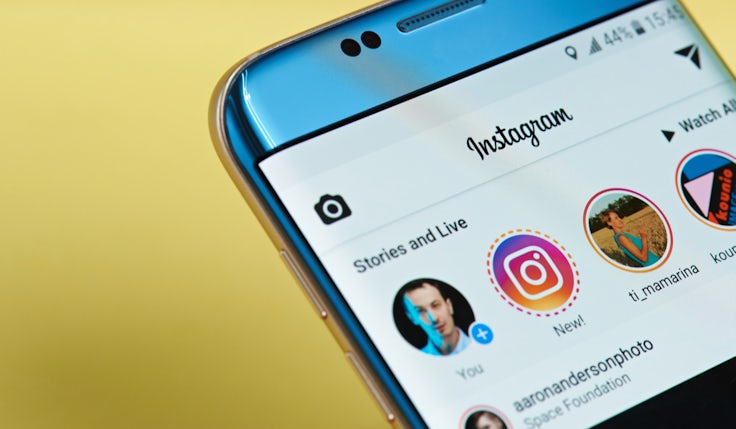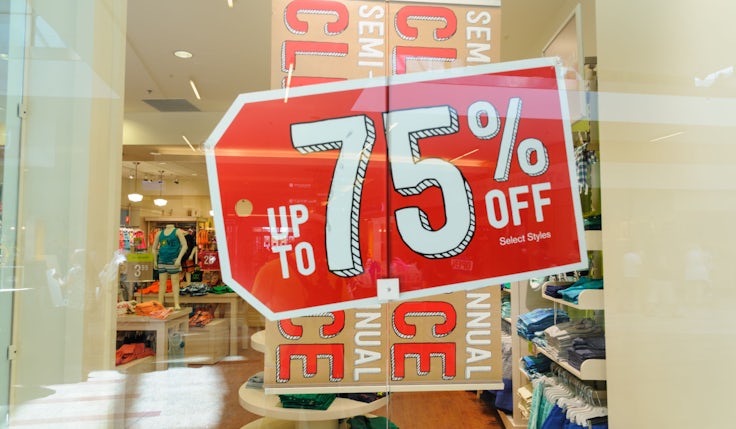Sustainability, influencers, creativity: 5 interesting stats to start your week
We arm you with all the numbers you need to tackle the week ahead.
Almost all young consumers say cost crisis is restricting ability to be sustainable
The vast majority (96%) of Gen Z and millennial consumers say the cost of living crisis has had a negative impact on their ability to make sustainable choices.
The research surveyed 2,000 Gen Z and millennial consumers to gauge their opinions on making sustainable purchase choices.
Over nine in 10 (92%) report feeling “engaged” on the topic of sustainability and climate change.
But despite a high level of engagement on the topic, many younger consumers report feeling lost as to how to make sustainable purchase choices. Almost two-thirds (63%) of consumers say they struggle to identify what brands are truly better for the planet and nearly half doubt whether sustainability claims made by brands are genuine.
Just half (52%) feel brands generally are working to be more sustainable. Despite concerns about cost, most (56%) younger consumers do believe that more sustainable habits would save them money in the long term.
Source: Earthtopia by 33Seconds
Consumers more likely to be influenced by friends and family
 Nearly two-thirds (61%) of consumers say they’ve bought a product following a recommendation from friends or family, while just 19% say they have made a purchase based on an endorsement from a celebrity influencer.
Nearly two-thirds (61%) of consumers say they’ve bought a product following a recommendation from friends or family, while just 19% say they have made a purchase based on an endorsement from a celebrity influencer.
Almost a third (29%) of those surveyed report being most influenced by everyday social media users. Indeed, when asked who brands should partner with to promote their products, the majority (62%) of consumers say ordinary social media users.
Nearly one-third (30%) of consumers say they have grown to trust ordinary social media users over the past five years. At the same time, traditional social media influencers are losing consumer trust.
Since early 2023, the ‘de-influencing’ trend has swept TikTok, which refers to users being encouraged not to buy specific products. Nearly half of those aware of the trend say they have become more cautious of celebrities and influencers promoting products on social media as a result.
Source: Bazaarvoice
Bad weather dampens August footfall
 Retail footfall in the UK fell by 1.6% in August versus the same period in 2022. It was also down from 1.8% in July.
Retail footfall in the UK fell by 1.6% in August versus the same period in 2022. It was also down from 1.8% in July.
August 2022 saw a heatwave sweep the UK, prompting consumers to rush to shops to buy BBQs, summer clothes and outdoor essentials. However, this August was much wetter by comparison.
Shopping centre footfall saw the biggest decrease in August, declining 3.8% year over year. High street footfall also saw a year-over-year decline of 0.9%. Footfall in retail parks remained unchanged versus August last year.
Some cities, such as London, Liverpool, Manchester and Edinburgh, did see some boost from tourism. However, BRC chief executive Helen Dickinson notes the impact was limited, despite tourism returning to pre-Covid levels.
“Government should re-introduce a tax-free shopping scheme to attract international shoppers, who are currently choosing other destinations,” she says. “Unless action is taken, the UK remains the only European country without a VAT-free shopping scheme.”
Source: British Retail Consortium/Sensormatic IQ
Women’s World Cup viewership up 83% versus previous tournament
 There was an 83% increase in views of the Lionesses’ World Cup matches versus the previous tournament in 2019.
There was an 83% increase in views of the Lionesses’ World Cup matches versus the previous tournament in 2019.
England’s World Cup 2023 players saw a 112% increase in their social media following. The number of followers of the squad’s account has risen by 13%.
Keira Walsh, who claims the title as the most expensive female player in club football, is the most-followed Lioness. She surpassed Lucy Bronze as the most-followed player from the squad during the tournament.
The top eight teams also saw social media followers increase during the tournament. There was a 59% rise following the quarter-finalists.
Source: Forza Football
AI fuelling creativity for marketers
 Over half (59%) of marketing managers say artificial intelligence fuels their creative thinking. However, almost an equal proportion (50%) fear it will make some elements of their role redundant.
Over half (59%) of marketing managers say artificial intelligence fuels their creative thinking. However, almost an equal proportion (50%) fear it will make some elements of their role redundant.
The problems AI may pose around data and privacy issues is another concern for marketers, with almost three-fifths (56%) worrying about this.
Budgets are coming under pressure amid a tough economic environment, with a quarter (25%) of marketing managers reporting decreased budgets. Faced with these constraints, four in five marketing managers say they are turning to AI.
While almost nine in 10 (88%) marketing managers see AI as being effective, 43% believe leadership’s view of AI is negative. Almost half (46%) of marketing managers also perceive a technology skills gap within their teams.
Source: Hubspot









Comments